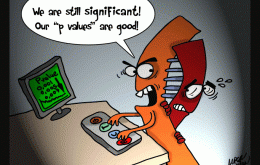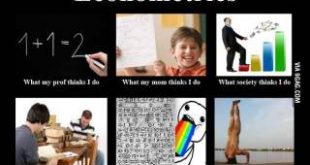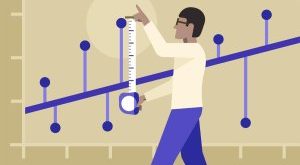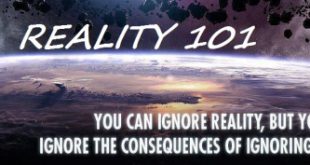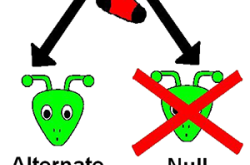The Illusion of Certainty [embedded content]
Read More »What — if anything — do p-values test?
What — if anything — do p-values test? Unless enforced by study design and execution, statistical assumptions usually have no external justification; they may even be quite implausible. As result, one often sees attempts to justify specific assumptions with statistical tests, in the belief that a high p-value or ‘‘nonsignificance’’ licenses the assumption and a low p-value refutes it. Such focused testing is based on a meta-assumption that every other...
Read More »Econometrics and the problem of unjustified assumptions
Econometrics and the problem of unjustified assumptions There seems to be a pervasive human aversion to uncertainty, and one way to reduce feelings of uncertainty is to invest faith in deduction as a sufficient guide to truth. Unfortunately, such faith is as logically unjustified as any religious creed, since a deduction produces certainty about the real world only when its assumptions about the real world are certain … Unfortunately, assumption uncertainty...
Read More »Sloppy regression interpretations
In most econometrics textbooks the authors give an interpretation of a linear regression such as Y = a + bX, saying that a one-unit increase in X (years of education) will cause a b unit increase in Y (wages). Dealing with time-series regressions this may well be OK. The problem is that this ‘dynamic’ interpretation of b is standardly also given as the ‘explanation’ of the slope coefficient for cross-sectional data. But in that case, the only increase that can generally come...
Read More »Understanding regression assumptions
Although most social scientists can recite the formal definitions of the various regression assumptions, many have little appreciation of the substantive meanings of these assumptions. And unless the meanings of these assumptions are understood, regression analysis almost inevitably will be a rigid exercise in which a handful of independent variables are cavalierly inserted into a standard linear additive regression and coefficients are estimated. Although such an exercise may...
Read More »On the applicability of statistics in social sciences
On the applicability of statistics in social sciences Eminent statistician David Salsburg is rightfully very critical of the way social scientists — including economists and econometricians — uncritically and without arguments have come to simply assume that they can apply probability distributions from statistical theory on their own area of research: We assume there is an abstract space of elementary things called ‘events’ … If a measure on the abstract...
Read More »Econometric illusions
Because I was there when the economics department of my university got an IBM 360, I was very much caught up in the excitement of combining powerful computers with economic research. Unfortunately, I lost interest in econometrics almost as soon as I understood how it was done. My thinking went through four stages: 1.Holy shit! Do you see what you can do with a computer’s help. 2.Learning computer modeling puts you in a small class where only other members of the caste can...
Read More »Observational data and causal inference
Observational data and causal inference Distinguished Professor of social psychology Richard E. Nisbett takes on the idea of intelligence and IQ testing in his Intelligence and How to Get It (Norton 2011). He also has some interesting thoughts on multiple-regression analysis and writes: Researchers often determine the individual’s contemporary IQ or IQ earlier in life, socioeconomic status of the family of origin, living circumstances when the individual...
Read More »The biggest problem in science
The biggest problem in science There’s a huge debate going on in social science right now. The question is simple, and strikes near the heart of all research: What counts as solid evidence? … Prominent statisticians, psychologists, economists, sociologists, political scientists, biomedical researchers, and others … argue that results should only be deemed “statistically significant” if they pass a higher threshold. “We propose a change to P< 0.005,” the...
Read More »Improbability and the law of truly large numbers
Improbability and the law of truly large numbers [embedded content]
Read More » Heterodox
Heterodox

